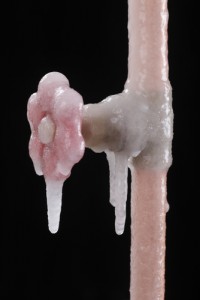 There’s no greater plumbing woe than severe home flooding. Water damage can quickly run up repair costs and slow, undetected leaks can damage the structural integrity of your home.
There’s no greater plumbing woe than severe home flooding. Water damage can quickly run up repair costs and slow, undetected leaks can damage the structural integrity of your home.
Some types of flooding are uncovered by homeowner’s insurance, so the smart move is to nip possible hazards in the bud with preventative maintenance.
Here are a few tips to get you started.
Burst Pipes & Failed Fittings
A broken pipe can fill your home with water in minutes. If you’re out when it happens it could be catastrophic.
A primary cause of burst pipes is freezing so be sure to insulate all exposed piping during winter months, especially in crawl spaces or under the house. Since insulation alone is not enough to prevent freezing, keep your home heated to a reasonable temperature. In extreme cold, leave a tap running at a constant drip to maintain flow in the pipes.
Always disconnect hoses from outdoor spigots before freezing temperatures arrive.
Should your pipes freeze, research proper warming techniques to avoid damage during thawing.
A lesser-known hazard is failure of fixtures/connections due to low water quality. If you live in an older home or in an area known for low water quality, inspect your plumbing system regularly. Replacing worn connections in advance could save you thousands of dollars and a giant headache.
Appliances & Hoses
Appliances that use large volumes of water (such as washing machines, water heaters and dishwashers) are liable to flooding disasters when not looked after properly.
Connection hoses should be checked annually to inspect for wear & tear, cracking or loosened connectors. Some plumbers recommend replacing hoses every 5 years as a preventative measure and appliance manufacturers suggest installing any new machine with fresh hoses.
Upgrading to a higher quality hose can decrease your flood risk and lengthen the time between replacements.
Modern flood prevention devices can also be installed for additional peace of mind.
Poor Drainage & Sewer Blockages
A clogged main line can back up sewage and wastewater through toilets, sinks, showers, and floor drains. While monetary damage from this type of flooding tends to be minimal, it creates an awfully disgusting mess you’d rather not deal with.
Avoid issues by making sure you don’t send clog-causing substances or debris down the system. Then, install backwater valves to prevent waste from traveling back up the system and conduct regular inspections to look for blockages.
Natural Flooding & Storm Water
Natural disasters are difficult to predict and next to impossible to avoid. However, if your home is explicitly prone to the dangers of natural flooding it could be a smart move to install a sump pump to remove unwanted water from your ground floor or basement.
Be sure to test the pump regularly to ensure that it is in working order. Consider having your foundation inspected if water enters your home regularly from relatively normal rain conditions.
